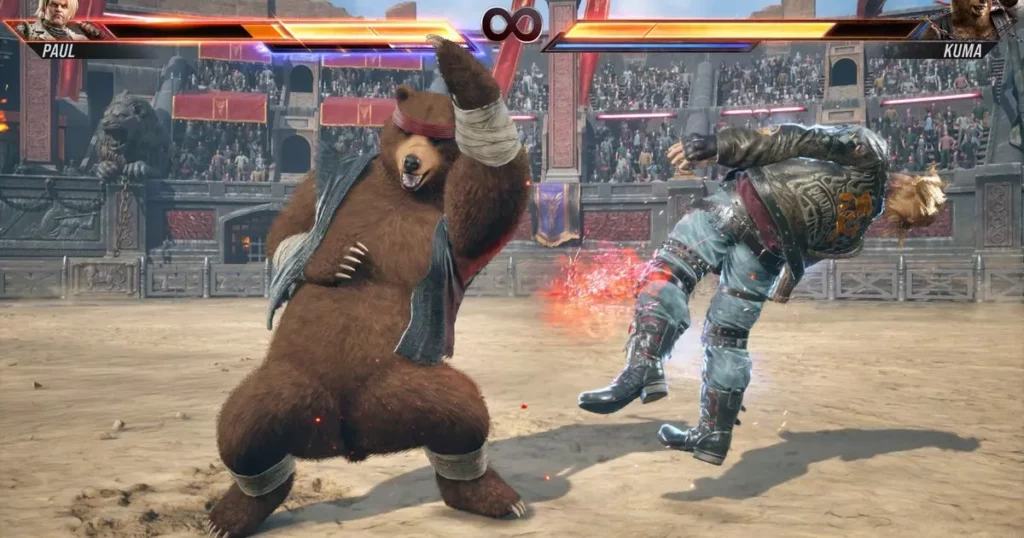In an age when complex gaming mechanics often overshadow core gameplay, the mod “Good Ass Tekken,” created by player KulaGGin, stands as a beacon of nostalgia and a reminder of the intentional, strategic play that once ruled the fighting game scene. By shedding many of Tekken 8’s contemporary features, including the heat bar and armored moves, this mod pulls players back into what many argue is the essence of competitive fighting games: simplicity and skill. Was the drive for innovation in fighting games really worth sacrificing the very foundation of enjoyable combat? The verdict from the community seems to suggest “no,” as “Good Ass Tekken” offers a fresh perspective on the genre.
Nostalgia: The Heartbeat of the Gaming Community
Throughout the years, the gaming industry has evolved into a hyper-competitive playground dominated by flashy mechanics and visually overwhelming graphics. However, this relentless chase for innovation has, for many, led to a watering down of what it means to truly compete. The nostalgia for simpler times permeates the design of “Good Ass Tekken,” resonating deeply with players who recall the strategic depth of Tekken 5. By stripping the game down, KulaGGin presents not just a mod, but a statement: that deep, rewarding gameplay often lies in the basics. By eliminating flashy combos and complex mechanics, the mod invites players to focus on what truly matters: strategy, timing, and skillful execution.
Complexity vs. Clarity: Defining the Future of Fighting Games
One of the most contentious points of discussion regarding “Good Ass Tekken” lies in the removal of the heat bar and rage states. While these features were introduced in hopes of streamlining the pace and making matches more dynamic, the reality is more nuanced. Players have expressed that these additions create an environment where risk and reward become disjointed, effectively diluting the game’s strategic framework. With the mod’s design, KulaGGin seeks to remind us that mastery requires clarity. The ability to recognize when to attack or defend—not merely the thrill of executing a damage-dealing combo—is what encourages true skill development. Modern games risk losing this strategic clarity in favor of adrenaline-pumping moments that can be more about spectacle than skill.
Community Divides: Old Guard vs. New Wave
The reception of the mod has invoked a slew of mixed reactions within the fighting game community. You’ll find individuals staunchly supporting the throwback route of “Good Ass Tekken,” while others believe retaining modern features is crucial for maintaining excitement. This divide exemplifies a larger debate within gaming—it speaks to both the collision of ideals and the need for diverse game mechanics. Some worry that nostalgia-driven designs may push away newer players who thrive on the complexity of modern systems. Others argue that the charm and depth of classic gaming experiences should never be brushed aside. My inclination leans towards blending both worlds to foster an environment of comprehensive engagement that pushes both veterans and newcomers to thrive.
Bridging the Gap Between Old and New
“Good Ass Tekken” does more than just revive classic gameplay; it pulls a critical thread through the fabric of modern game design. In an age where franchises are often amended to lure in the casual player, KulaGGin urges developers to remember the roots of competitive gaming. It’s about finding that elusive balance between complexity and simplicity, maintaining the thrill of competition while inviting back the meticulous gameplay of yesteryears. The very act of modding serves as a crucial reminder that many players aren’t merely seeking more features—they’re looking for connection, mastery, and a fulfilling competitive experience.
A Call for Thoughtful Game Development
As game developers contemplate the future of fighting games, they ought to pay attention to community-driven movements like “Good Ass Tekken.” Instead of continuing on a trajectory of relentless complexity, why not pause and consider the value of a streamlined, thoughtful experience? The evolution of fighting games, much like any artistic medium, should embrace diversity without alienating its core audience. Developers have both a responsibility and an opportunity to create games that appeal to the classical sensibilities of seasoned players while also enchanting newcomers with strategic depth. The path forward lies not in erasing the past, but by harmonizing it with the future to craft experiences that are equally enriching for all stakeholders involved.









Leave a Reply